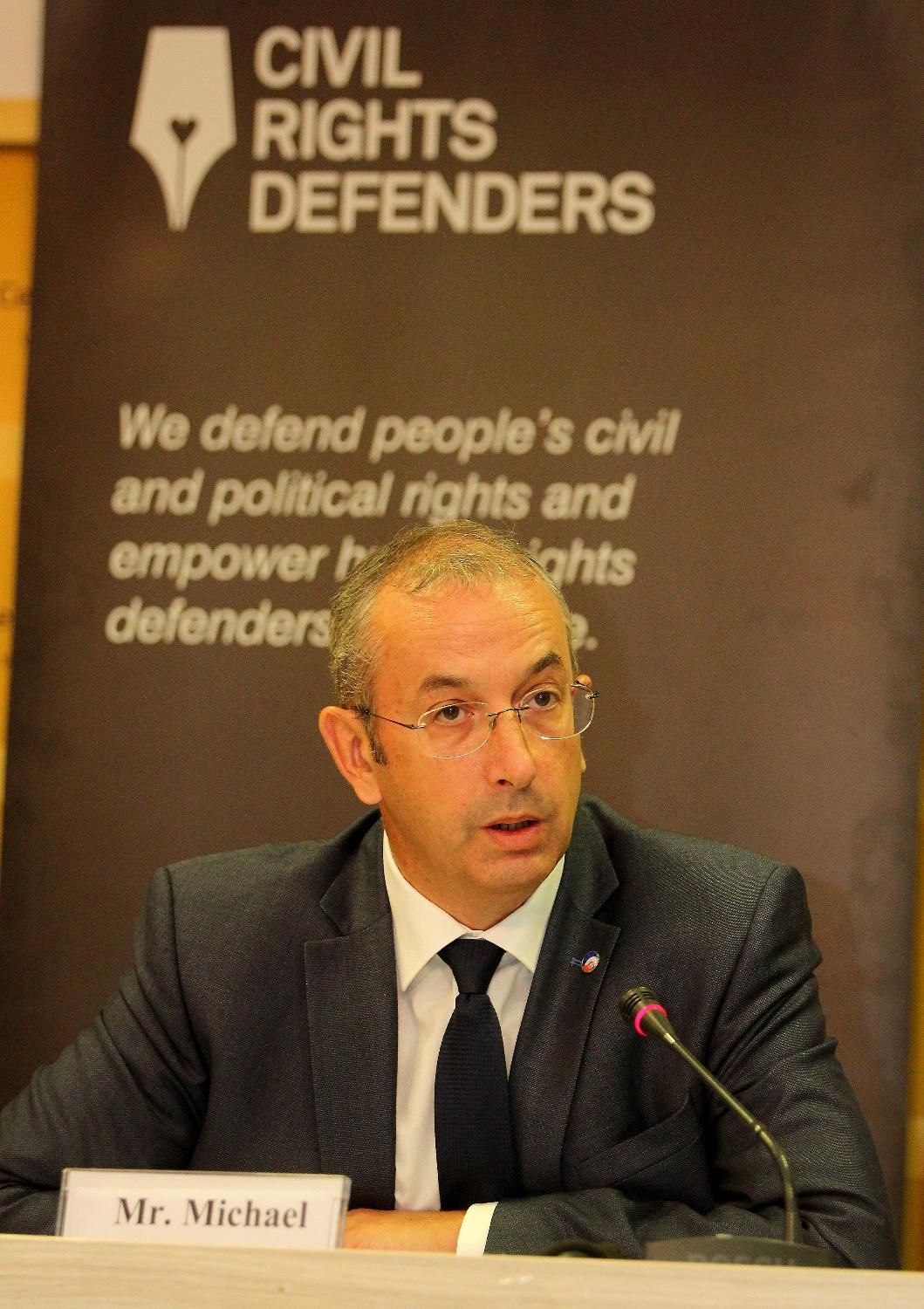Overall atmosphere ahead of Pride March taking place on Sunday 18 September, is much better than the previous year and is impossible to compare to the years when the March was banned, the participants of Belgrade Pride Forum said, adding that the LGBTI community seeks only observance of their fundamental rights and dignity.
Head of the EU Delegation to Serbia Michael Davenport said the difference between the tensions caused by the Pride Parade in 2010 and current situation was dramatic.
“I am a veteran on Serbian diplomatic scene and I remember the tensions caused by 2010 Pride Parade, though back then I was not the ambassador but a mere volunteer,” Davenport said and wished the participants a pleasant walk.
“In July 2016, Serbia opened two important chapters within the EU negotiations – Chapter 23, the rule of law and fundamental rights. Opening of said Chapter marks a major step forward and means that Serbia is more than ever committed to the implementation of Chapter 23 Action Plan,” Davenport said.
 “The Action Plan includes the obligation to respect the rights of the LGBTI community which entails fight against discrimination and better observance of rights of the LGTBI community,” he said and added that the discussion held at the National Assembly and Conclusions on the adoption of Declaration against Homophobia and the National Strategy against Violence also represented a positive development.
“The Action Plan includes the obligation to respect the rights of the LGBTI community which entails fight against discrimination and better observance of rights of the LGTBI community,” he said and added that the discussion held at the National Assembly and Conclusions on the adoption of Declaration against Homophobia and the National Strategy against Violence also represented a positive development.
Head of the Council of Europe Office Serbia Tim Cartwright said the LGBTI community was seeking neither additional nor special rights, but respect for their fundamental rights and dignity just like everyone else.
“Neither cultural, traditional, regional nor the rules of the dominant culture could justify discrimination and violence against LGBTI persons, and we are all aware of them. We are faced with stereotypes, intolerance,” Cartwright said.
Knowing there is not a single CoE member that fully respects the rights of the LGBTI community, we cannot expect Serbia to do so either, Cartwright said and welcomed the progress made.
Swedish MP Jesper Skalberg Karlsson said the LGBTI community in Serbia enjoys major support from the international community, with him being one of their friends who came to support the Pride March.
CoE Special Rapporteur on the rights of intersex people Piet de Bruyn said no one should be discriminated against because of their sexual or gender orientation, adding that the visibility of LGBTI persons must be maintained.
Human Rights Adviser to the High Commissioner Claude Cahn said the UN team would also join the Pride March in Belgrade and reminded that in 2016 the UN adopted a Resolution putting in place the institution of an expert on the issues of violence and discrimination against LGBTI persons.
Civil Rights Defenders Programme Director for the Balkans Goran Miletic said the forums were established for safety reasons seven years ago in order to keep the guests of the March in one place.
“The atmosphere today is much different and our guests are indeed the guests of the Pride. Tomorrow’s March will certainly take place, the atmosphere is much better compared to 2014 and 2015. It is beyond comparison to the years when the Pride March was banned. Overall situation is much better now,” Miletic said.
“There are, however, people who are scared, but we are certain the police can do their part of the job and protect all of those who wish to march and support the rights of the LGBTI community. This year, we prepared a programme and gave a new quality to our Pride March so it would finally start to look more and more like any other Pride in the world,” he said.
Evacuation was the key point of the past Pride Marches, with paddy wagons involved. This belongs to a distant past now, Miletic said.




